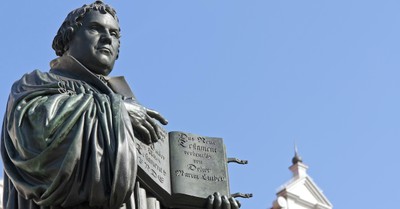The Remedy for 'Covid Anxiety' and the Tiny Hand of Christmas
“Tuesday’s winter solstice signals brighter days ahead,” the Washington Post assures us. We need them.
This Sunday, Israel will begin giving a fourth COVID-19 shot to people over the age of sixty and at-risk groups. Across the globe, the omicron variant is disrupting Christmas worship services, air travel, and police departments. Hospitals are preparing for overflow conditions once again.
“Covid fatigue” is reaching epidemic proportions. One broadcaster admitted “I’m sick of Covid” in a video that has gone viral. CNN‘s Chris Cillizza speaks for many when he describes his spiking “Covid anxiety.” He explains that Christmas “has always been one of my favorite times of the year. Now, it’s been filled with dread and foreboding.”
He concludes: “All I know is that it’s been a long December. And I need to find reasons to believe that next year is something I can look forward to.”
I’d like to offer such “reasons to believe” today.
Who is the most influential person in human history?
A recent listing of the twenty-five most influential people in human history includes Napoleon at #24, Julius Caesar at #21, George Washington at #16, Abraham Lincoln at #15, Plato at #10, Aristotle at #5, Albert Einstein at #2, and in first place, Jesus Christ.
Here’s what makes him different from all the others: we can know him personally.
In The Presocratics, historian Philip Wheelright noted: “Man in his search for the divine tends to reach out imaginatively in one of three general directions—the upward, the downward, and the inward.”
He explains that the upward envisions God above us and views sin as transgression by which we overstep our boundaries and deny his authority. The remedy is obedience to his command and moderation that accepts our lot as humans. The downward envisions God within his creation and views sin as pollution of his world. The remedy is health against sickness and harmony with nature. The inward envisions God in personal experience and views sin as alienation resulting from self-will and craving for individuation. The remedy is mystical reunion with him.
At Christmas we find all three.
Max Lucado comments on the fact that the Christ of Christmas would be named “Immanuel” (Matthew 1:23): “The name appears in the same Hebrew form as it did two thousand years ago. ‘Immanu’ means ‘with us.’ ‘El’ refers to Elohim, or God. Not an ‘above us God’ or a ‘somewhere in the neighborhood God.’ He came as the ‘with us God.’
“God with us. Not ‘God with the rich’ or ‘with the religious,’ but God with us. All of us. Russians, Germans, Buddhists, Mormons, truck drivers and taxi drivers, librarians. God with us. Prophets weren’t enough. Apostles wouldn’t do. Angels won’t suffice. God sent more than miracles and messages. He sent himself; he sent his Son” (his italics).
Why am I afraid to tell you who I am?
We all long to be known as we are and then loved for who we are. And yet the Fall is real in each of us. We all know how deeply we are not who we wish to be. John Powell’s book, Why Am I Afraid to Tell You Who I Am? answers the question for us all: we fear that if we are truly known, our true self will be rejected.
The Old Testament consistently assures us that God knows us as we are and loves us anyway. He tells his people, “I have loved you with an everlasting love” (Jeremiah 31:3). We are told that “the LORD your God is in your midst, a mighty one who will save; he will rejoice over you with gladness; he will quiet you by his love; he will exult over you with loud singing” (Zephaniah 3:17).
But how could his people be sure? After centuries of persecution by Assyrians, Babylonians, Greeks, and now Romans, how could they know that their God truly and unconditionally loves them?
The best way would be for that God to become one of them, to enter their condition with all its pain, grief, temptations, and fears. To know what it is to be a helpless baby, a parent-dependent toddler, a misunderstood adolescent, and a maligned and rejected adult. To face all we face and feel all we feel, even to the point of execution by crucifixion, the most horrific form of death ever devised.
Because of Christmas and all that happened because of Christmas, you and I need never again wonder if God truly knows us as we are and truly loves us anyway.
What is "the deepest meaning of Christmas"?
Now we can reach upward and inward to the God who reached downward to us. We can find in Immanuel the help and hope we need to face an ongoing pandemic and uncertain future.
But as with all other Christmas gifts, this one must be opened. Not to put on the shelf, but to place in our hearts. Not as a holiday, but as a holy day. Not for a day of the year, but for every day of the year.
Can I invite you to make time today to meet personally, intentionally, and intimately with Jesus? To share your fears and hopes with him and listen to his Spirit in your heart? To speak your worship and feel his presence? To open the gift of his grace wherever you need his grace today?
In her Christmas blog, my wife asks, “What would I have done if I had been invited to join the shepherds and be with the holy family?” She answers: “It only took a short moment of reflection to realize what I would have wanted to do. I’m a mom and a grandma. I would have wanted to do the same thing I did when I first held all my ‘babies’: I would have been enthralled with the tiny hand of Christ. I would have placed my finger in his tiny palm and smiled with joy when his little fingers instantly wrapped around mine.”
Janet adds: “That was my moment with Christ. In my quiet meditation, I knelt at the manger and was held by the tiny hand that would one day be held to a cross for my salvation. For me, that is the deepest meaning of Christmas.”
Why do you need to be held by that tiny hand today?
Publication date: December 23, 2021
Photo courtesy: ©GettyImages/manaemedia
Jim Denison, PhD, is a cultural theologian and the founder and CEO of Denison Ministries. Denison Ministries includes DenisonForum.org, First15.org, ChristianParenting.org, and FoundationsWithJanet.org. Jim speaks biblically into significant cultural issues at Denison Forum. He is the chief author of The Daily Article and has written more than 30 books, including The Coming Tsunami, the Biblical Insight to Tough Questions series, and The Fifth Great Awakening.
The views expressed in this commentary do not necessarily reflect those of CrosswalkHeadlines.
For more from the Denison Forum, please visit www.denisonforum.org.
The Daily Article Podcast is Here!


















